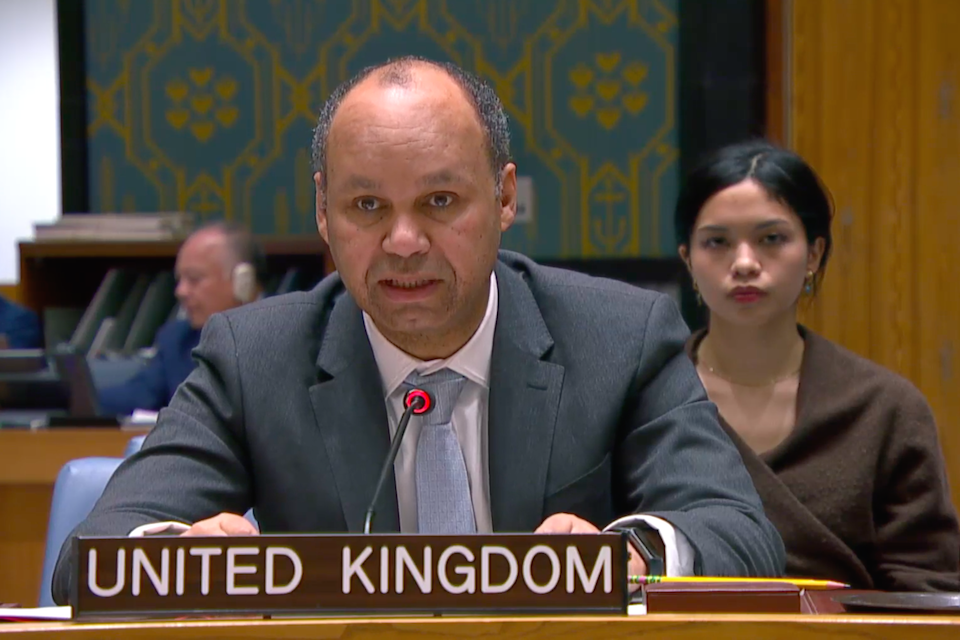We can do more to empower women as agents of peace: UK statement at the UN Security Council
Statement by Ambassador James Kariuki at the UN Security Council meeting on conflict prevention.

Thank you, President, and let me join others in thanking our briefers, USG DiCarlo, Ambassador Danese, Dr Williams and Ms Bhagwan-Rolls for their briefing today.
In 2014, the United Kingdom led the development of Security Council resolution 2171. That resolution, unanimously adopted, underlined the “moral, political and humanitarian imperative and the economic advantages” of preventing conflict. It called for intensified efforts to prevent conflict, drawing on a range of tools.
Ten years on, that call is even more relevant. The United Kingdom is grateful to Japan for convening today’s debate.
President, I will make three points on how this Council and the wider international architecture can better promote conflict prevention, empowering all actors.
First, we can do more to empower women as agents of peace. Gender equality is a strong indicator of sustainable peace, and peace processes are more durable when women are at the table.
This Council could be even more robust in advocating for women’s full, equal, safe and meaningful inclusion in peace, development, mediation and decision-making processes. We need to do so from Afghanistan to Sudan. And globally, we should continue striving to increase the proportion of women peacekeepers and peacebuilders.
Second, we can help generate broad, inclusive national ownership of conflict prevention and peacebuilding. Peace is not organic; the need to nurture it is universal. Yes, states have that primary responsibility but the evidence shows that inclusive, nationally-led, and locally-rooted efforts deliver more sustainable results. Young peacebuilders are often best placed to break the cycle of violence in local communities: a principle we apply to our own violence reduction strategies in the UK.
So, this Council can throw its weight behind inclusive national processes to build and sustain peace, as we have in Colombia. We can empower the Peacebuilding Commission to play its part as a space to mobilise political and financial support. And we can advocate for the Peacebuilding Fund and the UNDP-DPPA Joint Programme on strengthening national capacities for conflict prevention, both of which the United Kingdom is proud to support.
Finally, we can empower the wider international architecture as a companion in conflict prevention by working to deepen partnerships and advance integrated approaches. We should insist on application of the Secretary-General’s Integrated Assessment and Planning policy in UN Mission settings. We should pursue closer cooperation with regional organisations. And we should continue to encourage collaboration between the UN and the World Bank in countries affected by fragility, conflict and violence. This partnership is increasingly generating peace dividends, from The Gambia to Somalia and beyond.
President, the Summit of the Future and the 2025 Peacebuilding Architecture Review are opportunities to reinvigorate our collective efforts to prevent conflict. Let us seize them.
Thank you.